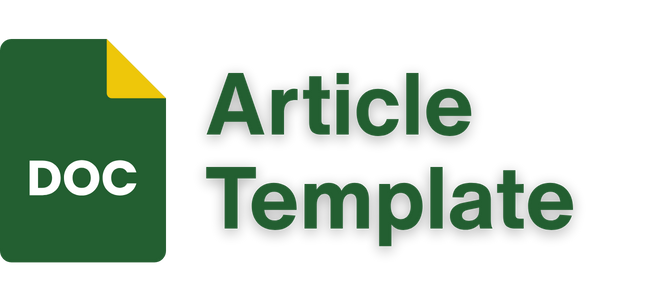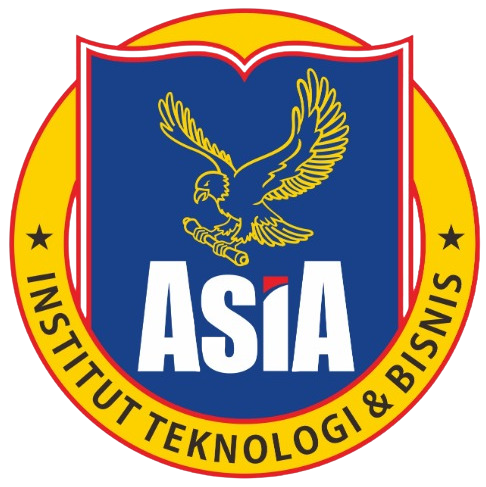REKONSTRUKSI PENDIDIKAN PERPAJAKAN: SUATU KAJIAN KRITIS TENTANG ETIKA PROFESI DALAM PERSPEKTIF KRITIS KI HADJAR DEWANTARA
DOI:
https://doi.org/10.32812/jibeka.v11i2.62Keywords:
Education, Tax, Ethic, Ki Hajar DewantaraArticle Metrics
Abstract
Quality education is needed for the improvement of human resources. The contribution given by the education world will color society's behavior. For that education should be able to give birth to the learner in accordance with the needs of the era and have the ideal values of science. Taxation education should not only be technical to give birth to a person capable of calculating taxes according to Law, but also need to have ethical based tax personality aspects. Ethics have an enormous influence and their absence will have a negative impact on the educational outcome own.
Tax issues at various levels of interest have shackled the practice of taxation in the country, it appears not apart from the moral problems that ditenggarai be a source of trouble. Therefore, it is necessary to have ethical content in tax education as a moral principle and guidance of learning. There are 5 informants in this research, all involved in the field of taxation education such as students, teachers, head of taxation department and tax consultant. This research uses the critical paradigm of Ki Hadjar Dewantara as the Father of National Education. The results of this study indicate that the material taxation provided does not have ethical elements. Teaching is only technical skill without taking into account the importance of ethics. In the perspective of Ki Hadjar Dewantara, this model of education is not in accordance with the essence of science itself, where in the educational process it is necessary to plant Budi Pekerti attached to ethics in relation to taxation education as implied in the thought of Ki Hadjar Dewantara
Downloads
References
2.Ardi Mulia, Etika perpajakan berbasis etika Pancasila, Jurnal Madani Edisi I/ Mei 2012..
3.Ayu Intan, Konsep Pendidikan Humanistik Ki Hadjar Dewantara dalam pandangan Islam, 2012, Tesis, Institut Agama Islam Negeri (IAIN) Walisongo.
4.Burrell, G dan G. Morgan, 1979, Sociological Paradigms and Organisational Analysis: Elements of The Sociology of Corporate Life. Heinemann Educational Books, London.
5.Dewantara, Ki Hadjar,1967. Bagian IIA: Kebudajaan. Diterbitkan oleh Madjelis Luhur Persatuan Taman Siswa. Ditjetak oleh Pertjetakan Taman Siswa. Jogyakarta.
6.Dewantara, Ki Hadjar. 1977. Bagian I: Pendidikan. Cetakan kedua. Diterbitkan oleh Madjelis-Luhur Persatuan Taman Siswa. Jogyakarta.
7.Ekasari, K. 2012.(Re)Konstruksi Pendidikan Akuntansi di Tingkat Pendidikan Vokasi, Melalui Epistimologi 3ling. Disertasi. Program Doktor Ilmu Akuntansi, Program Pascasarjana Fakultas Ekonomi dan Bisnis, Universitas Brawijaya.
8.Kamayanti, A. 2016, Metodologi Penelitian Kualitatif Akuntansi, Yayasan rumah paneleh, Jakarta, cetakan 2.
9.Moleong, Lexy (2009). Metodologi Penelitian Kualitatif ,Bandung. PT. RosdaKarya.
10.Mustofa, Bisri. (2008). Metode Menulis Skripsi dan Tesis. Yogyakarta: Optimus.
11.Pohan, Imbalo S. 2007. Jaminan Mutu Layanan Kesehatan: Dasar-Dasar Pengertian dan Penerapan. Jakarta. Penerbit Buku Kedokteran EGC.
12.Prastowo. 2010. Menguasai Teknik-teknik Koleksi Data Penelitian Kualitatif. Jogjakarta: DIVA Press.
13.Prastowo, Andi. 2012. Panduan Kreatif Membuat Bahan Ajar Inovatif. Jogjakarta: Diva Press.
14.Rahardjo Suparto, 2016, Biografi singkat Ki Hajar Dewantara, Jogyakarta, Garasi.
15.Rahman, Fathor. 2011. Analisis Sistem Pengendalian Intern dengan perspektif Spiritualisme Islam. Skripsi. Fakultas Ekonomi dan Bisnis, Universitas Brawijaya.
16.Riharjo, Ikhsan Budi, Memahami paradigma penelitian Non-positivisme dan implikasinya dalam penelitian akuntansi, jurnal akuntansi, Managemen dan sektor publik(JAMBSP), vol. 8 No. 1-oktober 2011:128-146.
17.Salampessy, Zulkarim. (2011). Pengaruh Dana Alokasi Umum (DAU) dan Pendapatan Asli Daerah (PAD) Terhadap Belanja Daerah, Jurnal Ekonomi dan Manajemen, Vol 2 No 1, Oktober, hal 19-29, Universitas Pattimura, Ambon.
18.Suka, G. 2012. Dominasi Dalam perspektif Teori Kritis. Jurnal Pustaka Volume XII, No. 1, februari 2012.
19.Sutriono dan Hanafie, S.R (2007). Filsafat Ilmu dan Metodologi Penelitian, Yogyakarta: Andi Offset.
20.Suyanto, Bagong dan Sutinah. 2005. Metode Penelitian Sosial: Berbagai Alternatif Pendekatan. Jakarta: Kencana.
21.Undang-Undang nomer 16 tahun 2009 tentang pengertian pajak.
22.Triyuwono I. Akuntansi Syariah dan Koperasi Mencari Bentuk dalam Bingkai Metafora Amanah, Jurnal Akuntansi dan Auditing Indonesia, Vol. 1,1997.
23.www.Dannydarussalam.com
24.ww.Kbbi.web.id
25.www.Liputan6.com
26.www.ortax.org
27. www.Pajak.go.id
Downloads
Published
How to Cite
Issue
Section
License
Happy reading. Don't be shy to cite








